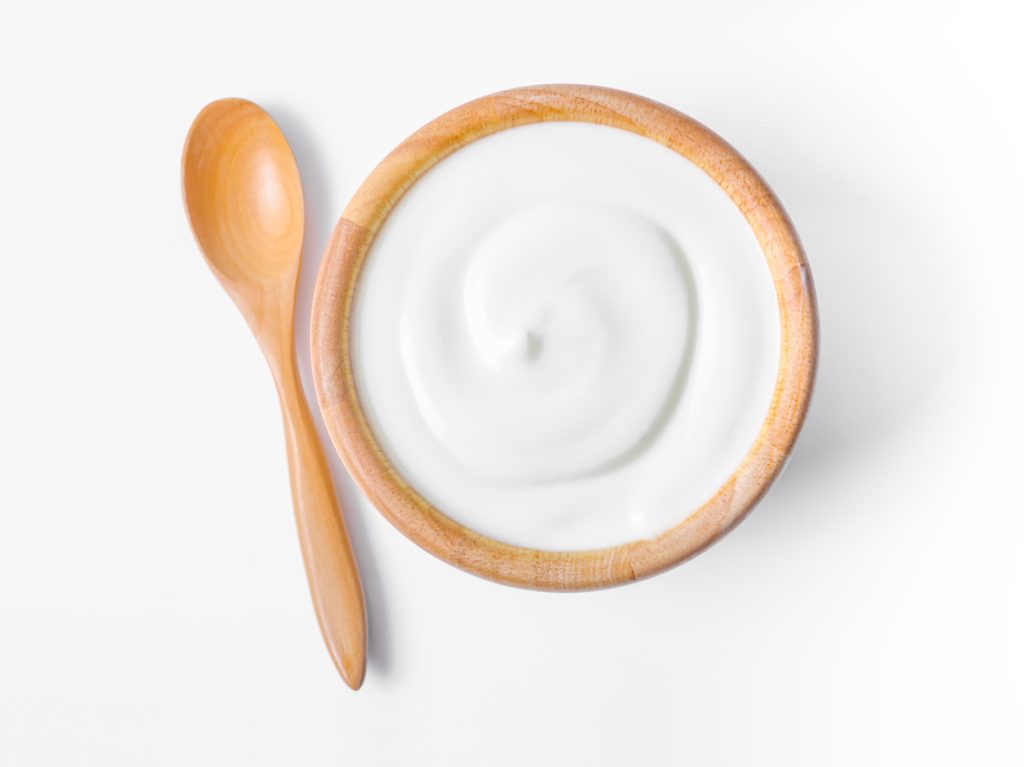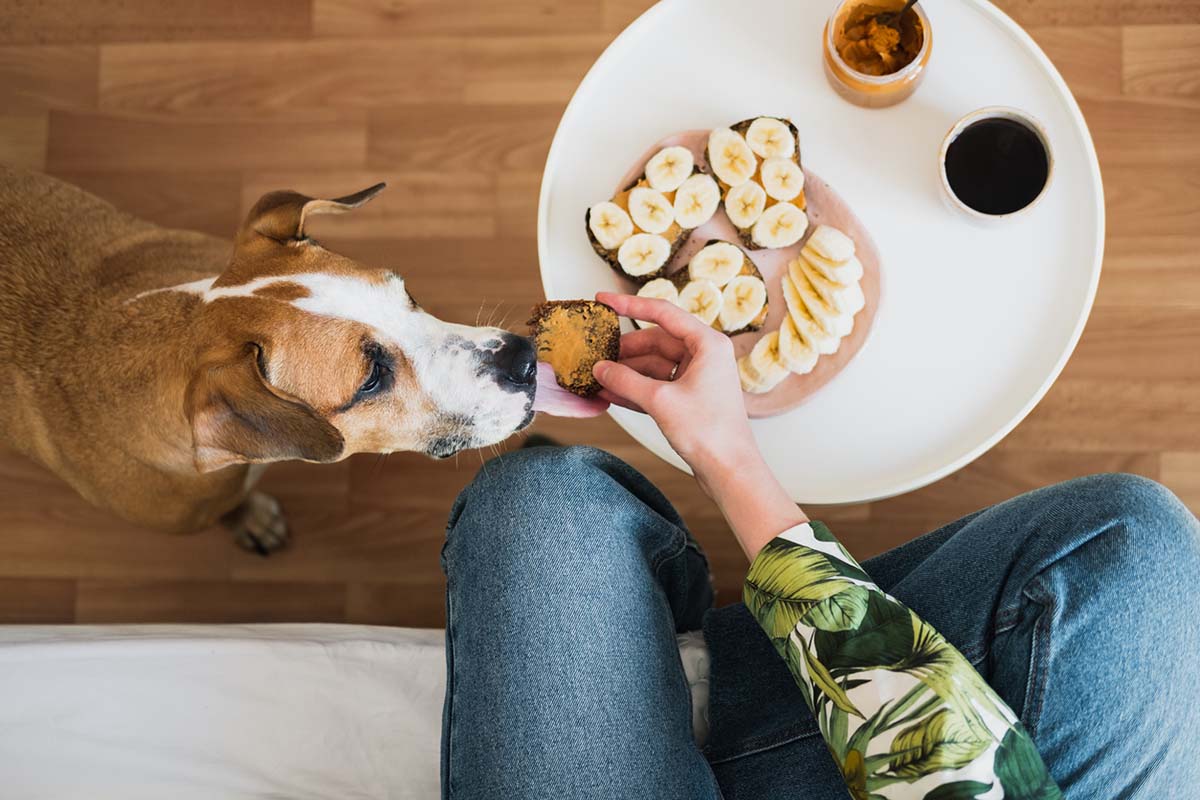We all know dogs love peanut butter, but can dogs have almond butter too? If you’re wondering whether almond butter is safe for dogs, then look no further. Here’s everything pet parents need to know about sharing almond butter and other nut butters with your pooch.
Is Almond Butter Safe For Dogs?
In general, natural almond butter is completely safe for dogs in small quantities. There may even be health benefits to giving your dog almond butter on occasion, and they’ll surely appreciate it as a tasty, high-protein treat.
While almond butter isn’t toxic to dogs, it’s important to understand that every dog’s digestive system is different. Just because some dogs can process almond butter doesn’t mean that every dog will be able to.
What is in Almond Butter?
Typically almond butter purchased from the store contains about 90% roasted almonds. It might also contain almond milk which is also fine for dogs, but keep an eye out for unnecessary additives like honey, vanilla extract, sugar, or salt.
When buying almond butter (or really any human food) to share with your dog, always check the ingredients label. Be sure it doesn’t contain traces of other nuts that can be harmful to dogs. Avoid almond butter or nuts butters with added sugars or artificial sweeteners like the plant-based sweetener xylitol which is poisonous to dogs.
Limiting Your Dog’s Almond Butter Intake
No matter how much they enjoy it, your dog’s health is the number one priority when deciding just how much almond butter to share with them. Limiting the amount of almond butter your dog ingests will help to avoid health issues that can range from uncomfortable to life-threatening.
Since almond butter and other nut butters are such high-fat human foods, it can be more difficult for a dog’s digestive system to process them. Consuming too much fatty foods like almond butter can cause issues like pancreatitis (an inflammatory disease) or hypoglycemia (dangerously low blood sugar).
Making sure your dog only has these types of foods on occasion will ensure they stay happy and healthy for years to come.
Why Can Dogs Eat Nut Butter and Not Nuts?
Dogs’ digestive systems can’t properly process whole, raw nuts like almonds, peanuts, or cashews. The reason they’re able to process nut butters and not whole nuts is that they’re roasted and ground, removing the toxicity and making them easier to digest.
While eating one or two likely won’t cause much harm in dogs with strong immune systems, larger quantities of whole nuts can not only be a choking hazard, but also lead to symptoms like vomiting, diarrhea, upset stomach, and loss of appetite. The high-fat content in raw, whole nuts can cause weight gain and lead to more serious issues with obesity or even liver failure.
Types of Nut Butters That Are (and Aren’t) Safe For Dogs
There are certain nut butters that are totally safe for dogs. It’s perfectly safe to give your dog almond butter, peanut butter, and cashew butter in small amounts, but here are a few nuts and nut butters you should avoid sharing with your pup.
What Nuts Should Dogs Avoid?
Some nuts contain different compounds that can be harmful to dogs. Ingesting these nuts whole can first and foremost be a choking hazard to dogs, and some aspects of certain nut butters can cause dogs to have serious health problems. Ingesting nuts or nut butter that aren’t safe for dogs can cause digestive issues, induce vomiting or cause muscle weakness. Avoid these risks by avoiding the following nuts for dogs:
Pecans
Pecans are especially dangerous for dogs because they contain the compound juglone, which can also cause gastrointestinal issues like diarrhea. They can also contain certain molds that are toxic to dogs if ingested, so take pecans right off the list of human foods that are safe for dogs.
Pistachios
Pistachios have an extremely high-fat content that can overwhelm your dog’s digestive system. The high salt content in pistachios can cause toxicity in dogs and induce vomiting and diarrhea as well as seizures. Salty, fatty snacks like pistachios can lead to pancreatitis in dogs and should be avoided.
Macadamia Nuts
Consuming macadamia nuts can be very dangerous for dogs. It can cause suppression of the central nervous system and affect things like your dog’s coordination and ability to walk. It can also induce hyperthermia in dogs, and intense overheating which can eventually lead to organ failure.
Walnuts
Walnuts are another nut that dog owners should avoid sharing with their furry friends. While accidentally ingesting a few of these nuts isn’t as much of a risk as pecans, pistachios, and macadamias, large quantities of walnuts (especially salted walnuts) can be a choking hazard and also lead to pancreatitis.
The Health Benefits of Almond Butter For Dogs
Not only do dogs love the taste of almond butter, but there are actually health benefits in it for them, too! Almond butter is full of magnesium and calcium, both of which are important for supporting healthy bones, muscle function, and heart health in dogs. It also contains vitamin B and vitamin E, and other nutrients that dogs need along with antioxidant compounds like flavonoids and polyphenols that support overall health.
3 Ways To Add Almond Butter to Your Dog’s Diet

Loving dog owners are always looking for fun ways to add healthy treats to their dog’s diet. If you’re looking to add some extra snacks for your dog to the menu, there are a few good ways to incorporate almond butter into dog food.
- Make homemade almond butter dog treats, like this dog biscuit recipe!
- Mix almond butter and pumpkin puree, then freeze in ice cube trays for a cool treat with lots of vitamins and protein.
- Add a dollop of almond butter to a cup of plain yogurt for a yummy probiotic dog treat.
Tips For Sharing Almond Butter and Other Nut Butters With Your Dog
- Share almond butter and all human food with your dog in moderation — it shouldn’t be an everyday treat for most dogs
- Start with a small amount of nut butter and monitor your dog after they’ve eaten it to make sure they don’t have any type of reaction. While it’s rare, some dogs can have tree nut or peanut allergies just like humans
- Keep the portion of almond butter or other nut butter small to avoid overwhelming your furry friend’s digestive system
- Do not buy almond butter that contains the artificial sweetener xylitol or traces of other nuts that can be harmful to dogs
- Make your own almond butter or peanut butter at home! This way you’ll know firsthand everything that goes into it and can guarantee it’s free from any harmful ingredients
- Ask your veterinarian or have your pet tested for allergies
- If you want your dog to be able to be an adventurous eater or if they have serious food allergies, pet insurance may be a good option. This way you can make sure you’re covered for any potential vet visits associated with trying new foods
This content is for informational use only and does not replace professional nutrition and/or medical advice, diagnosis, or treatment. It is not a substitute for and should not be relied upon for specific nutrition and/or medical recommendations. Please talk with your veterinarian about any questions or concerns.
